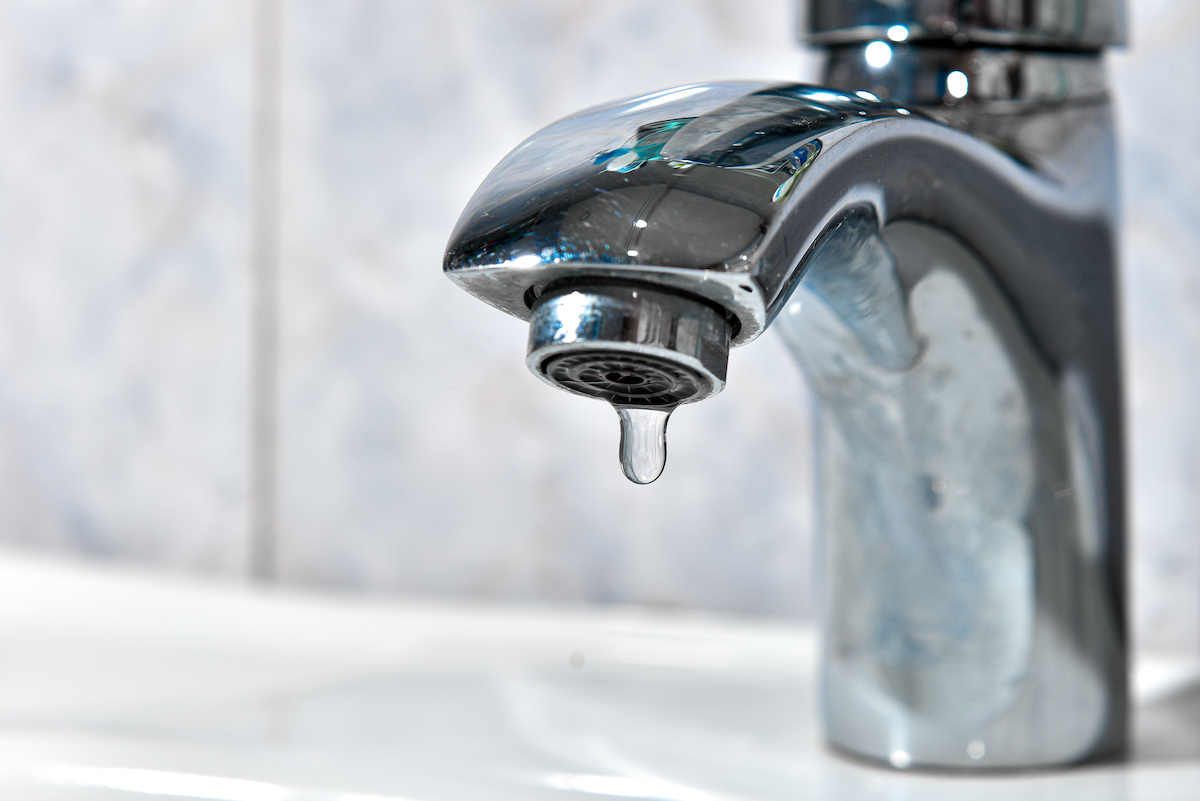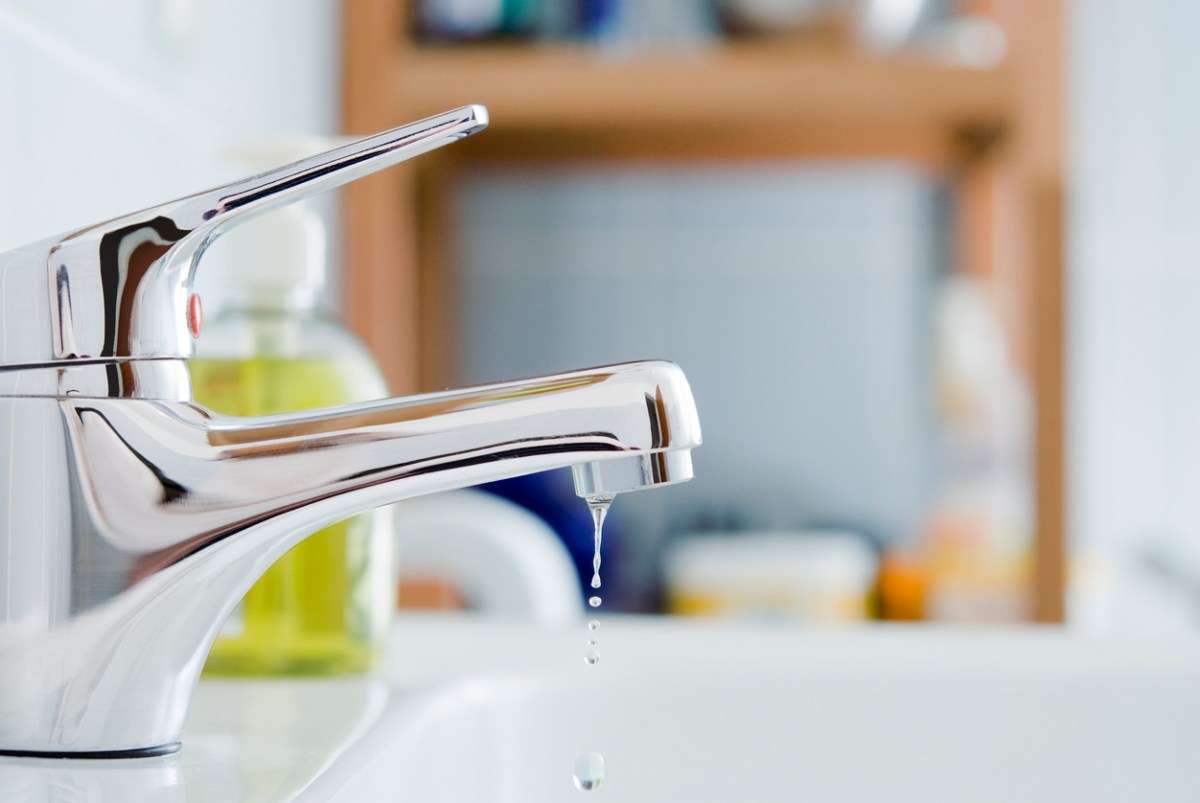What're your thoughts and feelings about Why Are My Faucets Dripping (And Can I Fix It Myself)??

Trickling taps might seem like a small hassle, but their effect goes beyond simply the nuisance of the noise. From wasting water to incurring unneeded financial prices and health threats, neglecting a leaking faucet can bring about different effects. In this post, we'll delve into why it's critical to address this usual family problem immediately and successfully.
Waste of Water
Ecological Impact
Leaking faucets contribute substantially to water wastefulness. According to the Epa (EPA), a solitary faucet dripping at one drip per second can waste greater than 3,000 gallons of water each year. This not just stress water sources however additionally impacts ecosystems and wildlife dependent on them.
Step-by-Step Guide to Taking Care Of a Dripping Faucet
Tools Called for
Before attempting to take care of a trickling faucet, gather the needed tools, including an adjustable wrench, screwdrivers, replacement components (such as washers or cartridges), and plumber's tape.
Common Tap Issues and Their Solutions
Determine the type of faucet and the specific concern creating the drip. Usual issues include damaged washers, rusty shutoff seats, or defective O-rings. Refer to supplier guidelines or on the internet tutorials for step-by-step assistance on repairs.
Financial Expenses
Boosted Water Costs
Beyond the environmental effect, dripping taps can inflate water costs significantly. The accumulated waste in time translates right into greater utility expenses, which can have been prevented with timely repairs.
Possible Building Damages
Moreover, extended leaking can result in damage to fixtures and surface areas surrounding the faucet. Water build-up can create staining, corrosion, and even structural issues if left neglected, causing added fixing expenses.
Health and wellness Concerns
Mold And Mildew and Mildew Development
The continuous existence of dampness from a leaking faucet develops a perfect atmosphere for mold and mold growth. These fungis not only compromise interior air top quality but also present health risks, particularly for individuals with respiratory problems or allergic reactions.
Waterborne Conditions
Stationary water in trickling taps can come to be a breeding place for microorganisms and various other pathogens, increasing the danger of waterborne conditions. Impurities such as Legionella germs flourish in stationary water, possibly causing severe illnesses when consumed or breathed in.
Do it yourself vs. Professional Repair work
Advantages and disadvantages of Do It Yourself Fixing
While some may try to repair a dripping tap themselves, do it yourself repair services include their very own collection of difficulties. Without proper understanding and devices, do it yourself efforts can aggravate the issue or bring about insufficient repair services, extending the issue.
Advantages of Hiring an Expert Plumber
Hiring a specialist plumber ensures that the underlying root cause of the dripping tap is resolved properly. Plumbings have the experience and tools to diagnose and fix faucet problems successfully, saving time and lessening the danger of more damages.
Environmental Obligation
Specific Payment to Preservation
Taking duty for dealing with dripping taps straightens with wider initiatives toward water conservation and environmental sustainability. Every person's actions collectively make a significant effect on protecting valuable resources.
Sustainable Living Practices
By focusing on timely repair work and taking on water-saving practices, people add to lasting living practices that benefit both present and future generations.
Safety nets
Normal Maintenance Tips
To stop dripping taps, perform routine upkeep such as cleansing aerators, evaluating for leakages, and changing worn-out components promptly. In addition, think about mounting water-saving tools or updating to more reliable components.
Significance of Prompt Repair Works
Resolving trickling taps as soon as they're observed stops further water wastage and possible damage, ultimately conserving both water and money over time.
Effect On Residential Property Value
Understanding of Well-Maintained Residential Or Commercial Property
Keeping a property in good condition, including dealing with upkeep issues like trickling faucets, improves its perceived worth and value amongst possible buyers or tenants.
Influence on Resale Worth
Residences with well-maintained plumbing fixtures, consisting of taps, command higher resale worths in the property market. Addressing leaking taps can add to a favorable impact throughout home assessments and arrangements.
Final thought
Resolving a dripping tap goes beyond simple ease; it's an important step toward conserving water, lowering monetary prices, and protecting wellness and property. Whether with do it yourself repair work or professional help, doing something about it to deal with trickling taps is a small yet impactful way to promote liable stewardship of sources and add to a healthier, more lasting future.
How to Fix a Leaky Faucet: Step-by-Step Repair Guide
A leaky faucet may seem like a simple annoyance, but if it's not fixed promptly, that leak could cost hundreds to potentially thousands. From water damage to mold, mildew, and high water bills, even a tiny leak can be catastrophic if left unattended. Damage like this can even affect the overall value of your home, so it's important to take the right approach for leaky faucet repair. You may need the help of a plumber in some cases, but we've got a few tips you can try on how to fix a leaky faucet before calling the pros.
Four Faucet Types
When you're learning how to fix a leaky faucet, the first step is knowing what kind of faucet you're working with! There are four common types.
Cartridge Faucets
Cartridge faucets come in one- or two-handled varieties. In one-handled cartridge faucets, hot and cold water combines in a single cartridge. In the two-handled versions, hot and cold water are controlled separately and mixed in the faucet.
Ball Faucets
Ball faucets have a single lever you push up and down to adjust the pressure and rotate to change the temperature. A slotted metal ball controls the amount of water allowed into the spout.
Compression Washer Faucets
They're the oldest type of faucet, but they're still used in many homes — especially older ones. Compression faucets have two separate handles that, when turned, raise or lower the washer that seals a water valve. This valve stops water from flowing through the faucet when it is turned off.
Disc Faucets
Disc faucets rarely need to be repaired due to their maintenance-free design. The water flow is controlled by two discs — the upper one raises and lowers against a fixed lower disc, creating a watertight seal. If your disc faucet starts leaking, you may need to replace the seals or clean residue buildup from the inlets.
Fixing a Leaky Faucet
Step 1: Turn Off the Water
Whether you're learning how to fix a leaky bathtub faucet or how to fix a leaky kitchen faucet, always turn off the water supply to your working area when you're fixing a leak. The last thing you want is a flood added to your list of things to fix.
Look for the shutoff valves below your sink or around the tub and turn them clockwise to stop the water flow. If your faucet doesn't have shutoff valves, you may need to turn off the water for the whole house. Check to make sure it's off by turning the faucet on. If nothing comes out, you're ready to start the repair.
Step 2: Take Apart the Faucet
How you disassemble your faucet depends on the type of fixture you have. You can use a flathead screwdriver to remove the caps on top of the handle or handles for cartridge and compression faucets. Inside, you should see handle screws. Unscrew these with a screwdriver to remove the handle.
Disc- and ball-style faucets will typically have an inlet screw near the handle, and removing that will reveal the interior of the faucet.
Detach the Valve Stem
For cartridge- and compression-style faucets, you'll see the inner valve stem or cartridge once you remove the faucet handles. If you have a compression faucet, unscrew the brass valve stem. If you have a cartridge faucet, pull out the cartridge. If your cartridge has been in place for a while, it may require some tools or extra force to remove it due to mineral deposits.
Examine and Replace Parts
Once you've removed the parts, check them out to confirm what needs to be replaced. You may see corroded rubber washers, O-rings, stems, or cartridges. On a ball-style faucet, check the seats and springs for damage.
If you need to repair a leaky disc faucet, check the inlet and seals on the lower disc.
Once you determine what parts must be replaced, visit your local hardware store. Bring the damaged parts with you to ensure you can purchase the correct components to replace them.
Clean Valves and Faucet Cavity
If you've removed a stem or cartridge, you may notice mineral buildup in the faucet's threads. Use white vinegar to clean the valve seat by soaking it for a few minutes, then scrub it away with a soft toothbrush and rinse with warm water. You can also clean the interior of the faucet in the same way.
Reassemble the Faucet
Once your faucet is cleaned and the required parts have been replaced, it's time to reassemble it. Put the pieces back together and slowly turn the water supply back on. Doing this slowly is crucial because too much initial water pressure can damage the new hardware you've just installed.
https://homewarranty.firstam.com/blog/how-to-fix-leaky-faucet

As a fervent reader on What Causes Leaky Faucets & How To Fix Them, I think sharing that piece of writing was sensible. Enjoyed reading our post? Please quickly share it. Let someone else discover it. I enjoy your readership.